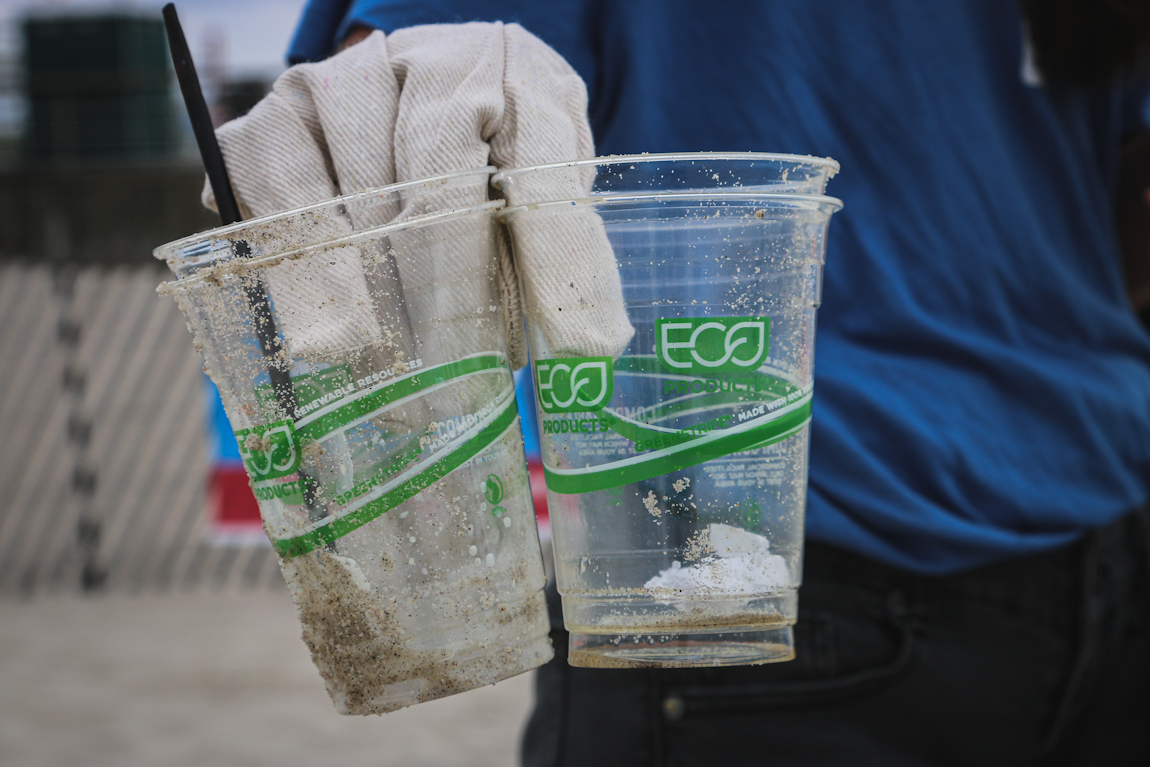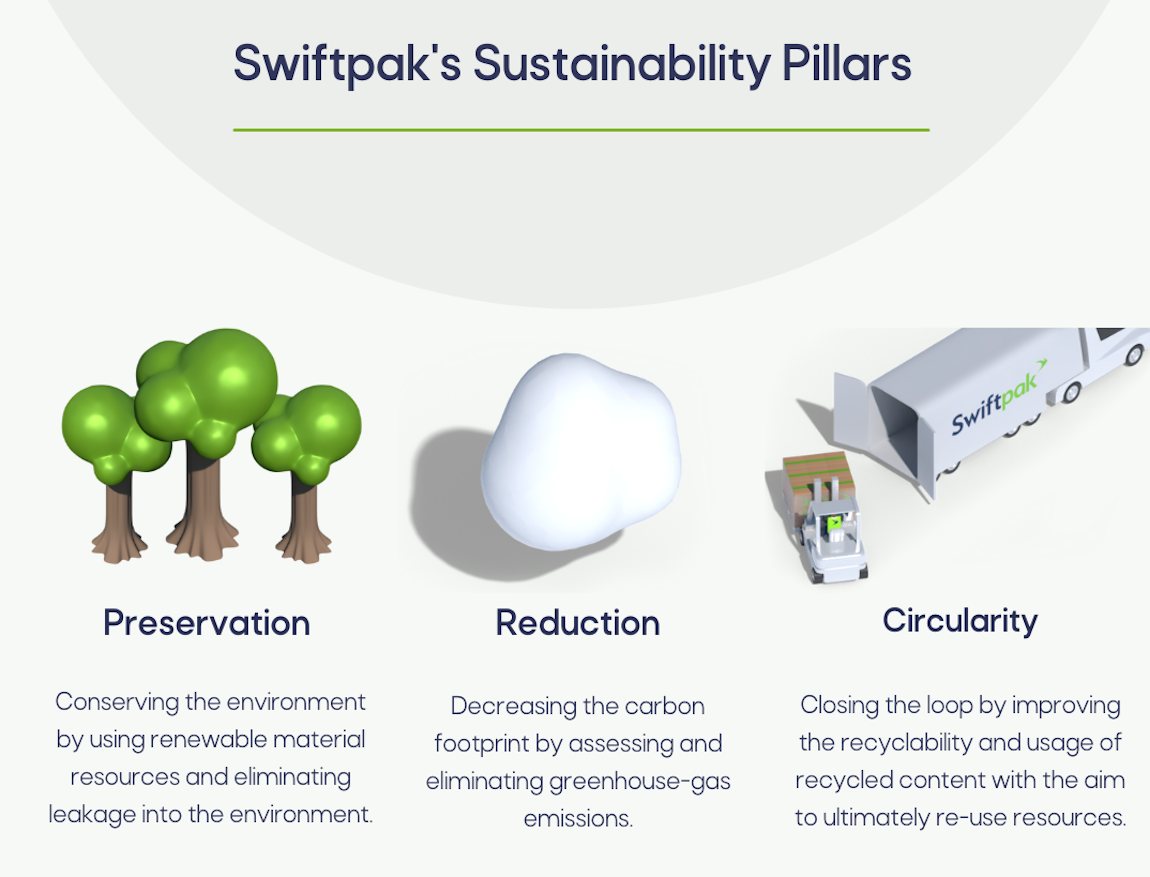In response to consumers and stakeholders becoming increasingly concerned about the environment and the impact of packaging leakage, stricter sustainability regulations are now emerging. Within this article, we will be exploring UK and European shifts in regulations for sustainable packaging.
UK and European shifts in sustainable packaging
The average European generates 180kg of packaging waste annually, which could increase by 19% by 2030 without intervention.

Single-use Plastic shifts
In recent years, sustainable packaging regulations have primarily focussed on plastic packaging with, 83% of legal measures related to sustainable packaging focusing on plastics. Currently, the EU and Asia have the highest number of regulations that focus on plastics, with France and India being the top countries.
This is because the EU is acting against plastic pollution. More than 80% of marine litter is from plastic and if action is not taken, the volume of plastic pollution entering marine areas will nearly triple by 2040 adding 23-37 million metric tons of plastic waste annually. However, plastic is not the enemy. It is a useful and valuable material that needs to be better used, re-used and recycled.
To tackle plastic pollution, new European regulations have come into force over recent years. For example, the European Single-Use Plastic’s Directive, effective from 3rd July 2021, banned single-use plastic plates, cutlery, straws, balloon sticks, and cotton buds from the EU market. The measure also applies to cups, food and drink containers made of expanded polystyrene, and products made of oxo-degradable plastic. The regulation also required that plastic bottles were to be made with at least 30% recycled content by 2030.

Single-use plastic products that are made from plastic and are usually intended to be used just once or for a short period of time before being thrown away. However, the new rules ban throwaway plastic products when alternative options are available. Similarly, by 2040, EU restaurants offering takeaways need to serve 40% of their meals in reusable or refillable packaging. However, not everyone is happy with this, especially the ocean conservation group ‘Oceana’ who are accusing the commission of giving in to industry pressure by pushing back targets to reduce single-use plastics further. On the positive side, at least change is slowly being implemented as people become more aware of their impact on the world.
Elsewhere, Plastic manufacturers in Germany will soon be required to pay towards litter collection. The bill will ask makers of products containing single-use plastic to pay into a central fund managed by the government. The fund will collect an estimated €450 million in the first year and will contribute to the cost of cleaning up litter in streets and parks. This new regulation will come into force in Germany in 2025.
Packaging recyclability shifts
The EU has also introduced legislation aimed at improving the recyclability of packaging materials. The Packaging and Packaging Waste Directive sets targets for member states to achieve high levels of packaging waste recovery and recycling. The directive requires environmentally friendly materials to be used for packaging and labelling of packing to clear the way for recycling.
In the UK, the government introduced a tax on plastic packaging containing less than 30% recycled content, that took effect from April 2022. The aim of the tax is to encourage companies to use more recycled materials in their packaging and to reduce the amount of plastic waste generated.

In what is called a ‘World First Initiative’, the UK introduced a voluntary initiative in 2018 called the UK Plastics Pact, which brings together businesses, governments, and NGOs to work towards a united goal of creating a circular economy for plastics. The Pact aims to eliminate unnecessary single-use plastics, increase the amount of recycled plastic used in new products, and improve the recyclability of plastics. This has been achieved through a roadmap that outlines the required actions needing to be taken by the end of 2022, 2023, 2024 and 2025.
Similarly, the EU introduced The Circular Economy Action Plan in 2020, with the aim to reduce waste and promote circularity into the economy. It targets how products are designed and influences sustainable consumption with the hope that waste is prevented, and resources are used and maintained in the EU economy for as long as possible.
Alongside this initiative, EU countries must also reduce the use of disposable plastic food containers and promote reusable alternatives, collect 90% of single-use plastic drink bottles by 2029, ensure bottles contain minimum amounts of recycled plastic, and introduce labelling to inform users of the negative impact of littering plastic products. This clearly shows how the world is shifting in terms of sustainability.

Are you looking for a more reliable sustainable packaging solution?
At Swiftpak, we take pride in helping you reduce your waste and look at more eco-friendly options without breaking the bank. As an environmentally responsible packaging supplier, we believe it is our responsibility to help you meet your environmental packaging responsibilities.
What is the Extended Producer Responsibility Agreement?
So, what is The Extended Producer Responsibility Agreement? Under the proposed EPR plans that will be phased in from 2023, businesses placing certain products onto the market will be required to pay the full costs that comes with the product throughout its life cycle. The new EPR structure will include and build on existing waste framework. Through regulations that come into play over the approaching months and years, this will create a stricter compliance regime for producers of these products.
To find out more about The Extended Producer Responsibility and whether it will affect you, visit our latest blog article.
In addition to EPR, DEFRA also set out an aim to add up to five new waste schemes to the UK EPR framework before 2025 comes to an end. The proposed schemes include:
- Textiles: including clothing and commercial textiles
- Bulky waste: including mattresses, furniture, and carpets,
- Construction and demolition materials
- Vehicle Tyres
- Fishing gear
France and Germany are currently ahead of the UK with reform of their EPR regime. For example, in France, changes have already been made in relation to batteries and packaging. In Germany, new packaging reforms have come into play including new extensive requirements being added to The German Packaging Act from July 2022. It meant that anyone who brings products into the German market in sales packaging or transport packaging will be required to register with the LUCID Packaging Register. For sales packaging, a contract with a recycling company is also necessary.

Biodegradable and compostable packaging shifts
The EU and the UK have introduced guidelines for biodegradable and compostable packaging to ensure they are environmentally friendly and meet a certain criteria. For example:
- The EU introduced the EN 13432 standard, defining the criteria for packaging to be considered biodegradable and compostable. The UK uses the same standard.
- Biodegradable and compostable packaging should be made from renewable materials such as plant-based materials like starch, cellulose, and other natural fibres.
- The packaging should break down into harmless substances within a reasonable time and under composting conditions. The EU standard requires that at least 90% of the material should break down within 6 months, while the UK standard says that at least 90% should break down within 12 weeks.
- The biodegradable or compostable packaging should not produce any harmful or toxic substances during breakdown processes.
- It should not leave behind any microplastics or other pollutants.
- The packaging should not interfere with the quality of the compost.
While biodegradable and compostable packaging can be the more environmentally friendly option, it’s still important to dispose of it properly in a composting facility to ensure that it disintegrates correctly and does not contaminate additional waste streams.
Sustainable packaging from Swiftpak
Overall, both the EU and UK are taking steps to reduce the impact of packaging on the environment, with a focus on reducing plastic waste and encouraging the use of more sustainable materials.
As a packaging supplier and Certified B Corporation, at Swiftpak sustainability is a topic that is close to our hearts. We recently released a full Sustainability Guide that showcases our approach to sustainability. Including discussing our pillars of environmental sustainability: preservation, reduction, and circularity. As well as sharing our thoughts on crucial topics such as Carbon Neutral vs Net Zero and Plastic vs Paper.

To find out all about Swiftpak’s sustainability journey and innovations check out our guide: https://www.swiftpak.co.uk/sustainability-guide. Alternatively, visit our website to see all of our sustainable packaging solutions. Feel free to contact our friendly packaging team today for any additional information.
